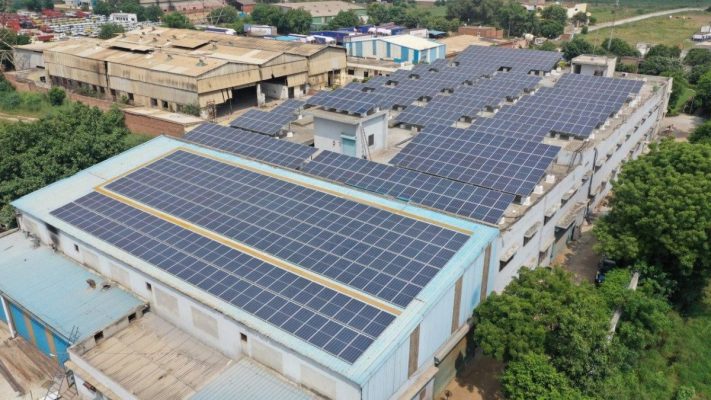Introduction:
Central Africa is grappling with a severe energy poverty crisis, with millions of people lacking access to electricity. Off-grid clean energy solutions, particularly mini-grids, present a promising opportunity to address this challenge and bring sustainable electrification to rural and underserved areas. However, one of the most significant barriers to realizing this potential is the development of viable financial models and tariff frameworks. Energy sector providers in Central Africa face immense challenges in creating acceptable financial structures that attract private investment while ensuring affordability for consumers.
This article explores the context of energy poverty in Central Africa, the importance of workable business models for the private sector, the challenges of defining financial and tariff frameworks, and potential solutions to overcome these barriers.

The Context of Energy Poverty in Central Africa:
Central Africa remains one of the least electrified regions globally, with countries like the Democratic Republic of Congo (DRC) and the Central African Republic (CAR) having electrification rates as low as 10-15%. This energy poverty hampers economic growth, limits access to essential services, and exacerbates inequality in these countries.
The region’s large geographical size and low population density make grid extension costly and impractical for many rural communities. Off-grid solutions, particularly solar-powered mini-grids, provide a viable alternative for delivering energy to these hard-to-reach areas. Despite the technical feasibility, the lack of solid financial models and tariff structures makes these projects financially unviable, which is a major roadblock to attracting private sector investment.
The Private Sector’s Role in Energy Development:
Private sector investment is critical for scaling up clean energy projects in Central Africa. However, for investors to be interested in deploying capital, there must be workable business models that ensure returns on investment. Currently, many energy providers and independent power producers (IPPs) struggle to develop acceptable financial frameworks for mini-grid projects. These challenges are compounded by the lack of financial modeling experience and tariff-setting expertise among regulators, utilities, and IPPs.
For mini-grids to be successful, they need a financial model that balances the need for affordability for end-users and profitability for investors. Poorly defined models result in unsustainable projects, leading to a loss of investor confidence and market stagnation. The private sector is willing to engage in these projects, but only when they can be assured that the financial returns are aligned with the risks.
Challenges Around Financial Models and Tariff Setting:
One of the biggest challenges for mini-grid projects in Central Africa is defining a financial model that works in a low-income, energy-poor environment. Some of the common hurdles include:
- Lack of Financial Acumen: Many off-grid energy providers, particularly smaller players, lack the financial modeling skills required to structure viable business models. This includes the ability to conduct accurate valuations, assess risks, and project long-term profitability.
- Tariff Setting: Determining the appropriate tariff structure for mini-grids is complex. On the one hand, tariffs must be affordable for local communities, many of whom live below the poverty line. On the other hand, they need to be high enough to ensure the financial sustainability of the project. Striking this balance is particularly difficult in rural settings, where the cost of energy generation can be higher than in urban areas.
- Regulatory Barriers: Inconsistent or unclear regulatory frameworks often make it difficult for energy providers to develop standardized financial models. Without clear guidelines on tariff regulation or subsidies, companies struggle to attract financing and scale their operations.
- Investor Uncertainty: Investors are often reluctant to commit capital without a clear understanding of the financial returns. The lack of robust financial models and well-defined tariff frameworks creates uncertainty, deterring investment in mini-grid projects.
Possible Solutions:
To address these challenges, there is an urgent need to enhance the financial acumen of all stakeholders involved in the energy sector. Regulators, utilities, and off-grid companies must be equipped with the knowledge and tools required to develop innovative business models that can attract private investment.
One solution is to provide targeted technical assistance and training programs. Workshops that focus on financial modeling, valuation methodologies, and tariff-setting strategies can help energy providers build viable business models. These interventions will enable stakeholders to better navigate the complexities of the financial landscape, ultimately leading to more bankable projects.
ResourcePrime, for example, could play a pivotal role by delivering such training programs to energy providers in Central Africa. Through investor pitch competitions and financial modeling workshops, companies can gain the skills necessary to develop and present sound financial models. This, in turn, would help accelerate market penetration and increase the number of successful mini-grid projects in the region.
Conclusion:
The future of clean energy in Central Africa hinges on the ability to create sustainable, financially viable mini-grid projects. While the technical solutions exist, the challenge lies in developing business models that work in an energy-poor, low-income environment. By enhancing the financial skills of energy providers and improving tariff-setting frameworks, it is possible to attract private investment and bring clean energy to millions of people in Central Africa.
Are you an energy provider or investor looking to develop off-grid clean energy projects in Central Africa? Contact ResourcePrime today for expert economic assessments and financial modeling assistance, training, and advisory services to ensure the success of your projects. Reach out to us at: Phone: +237 657 890 123 +18122200822
Email: info@resourceprime.com to learn more about how we can help you bridge the gap between energy poverty and sustainable development.